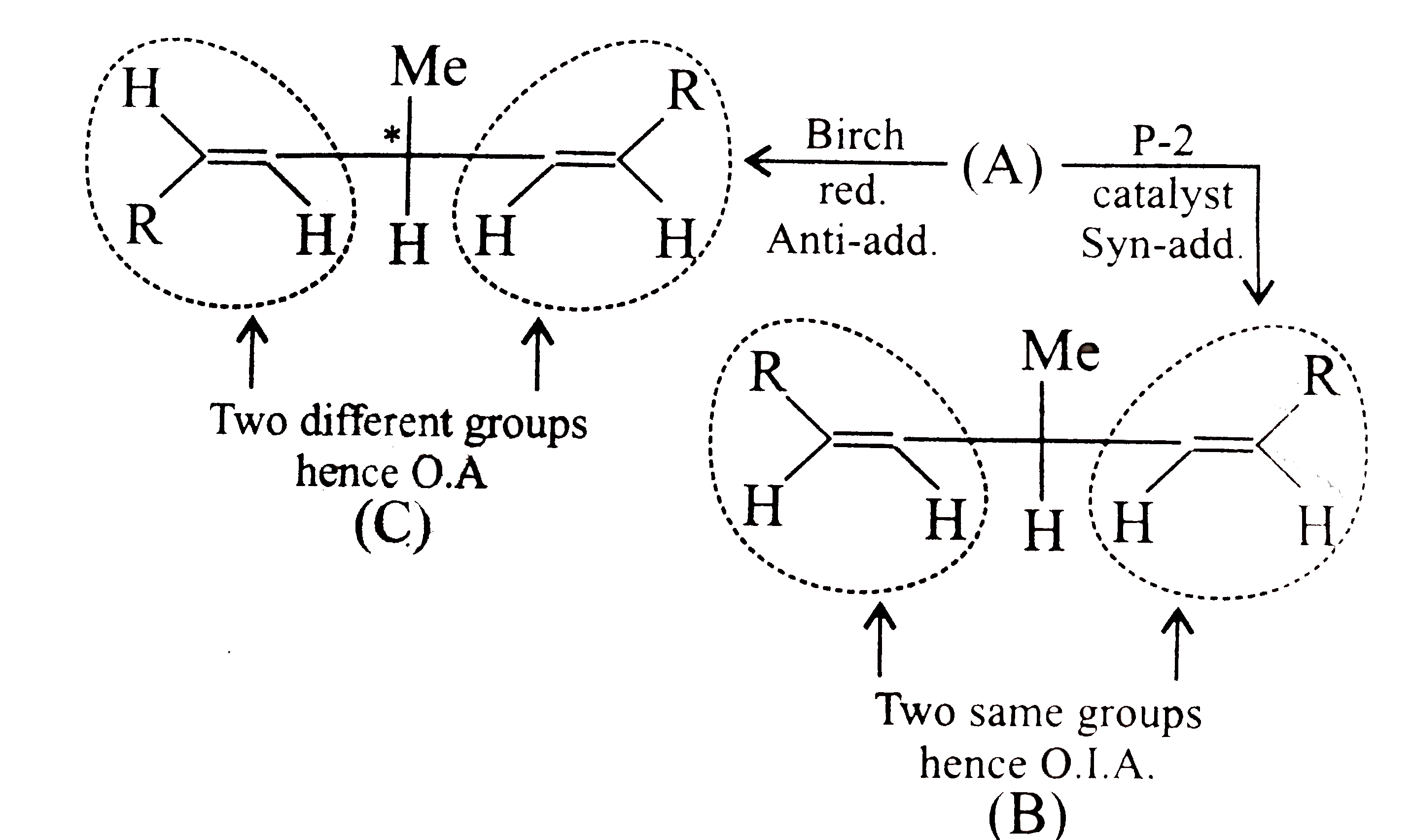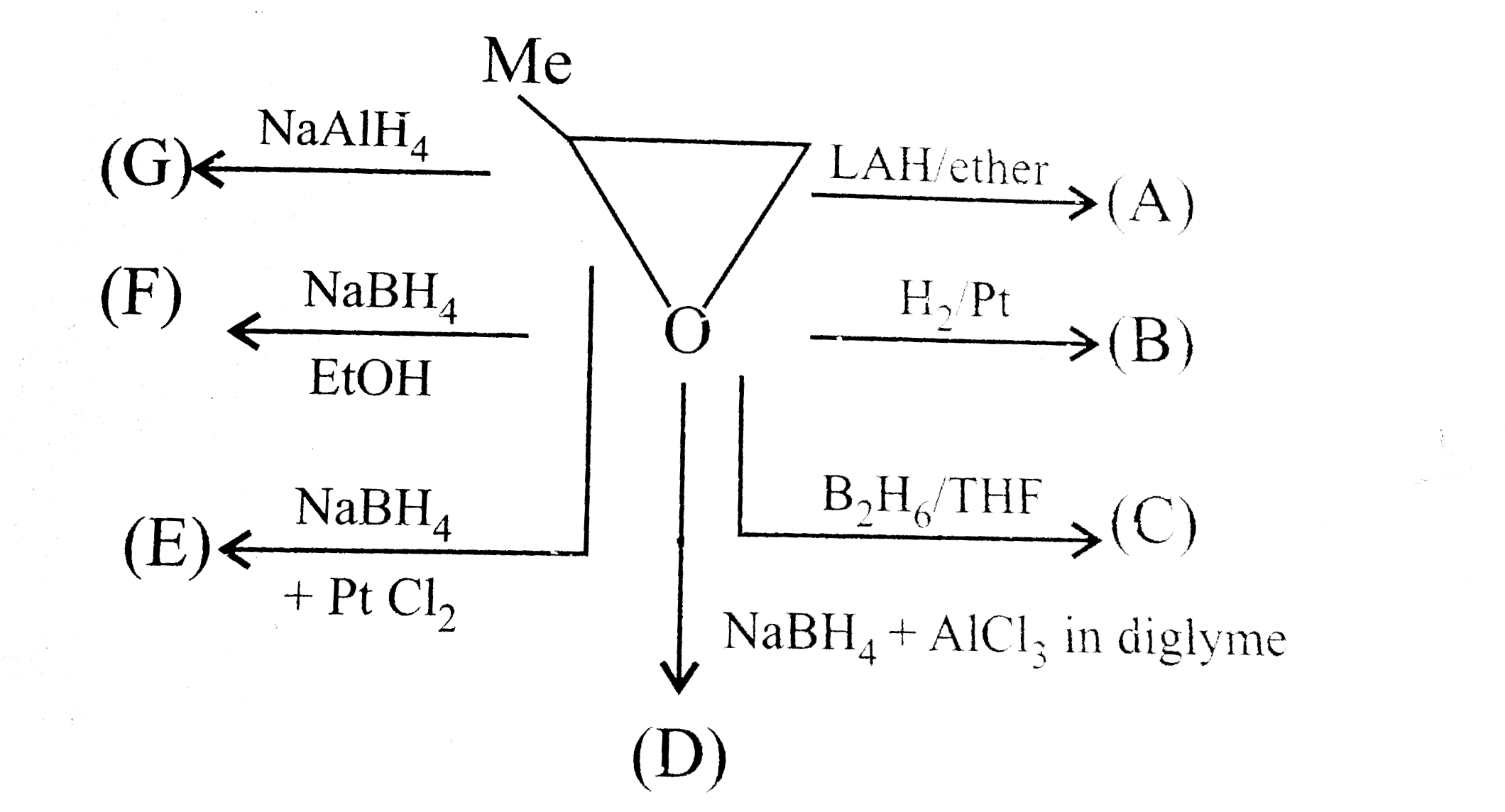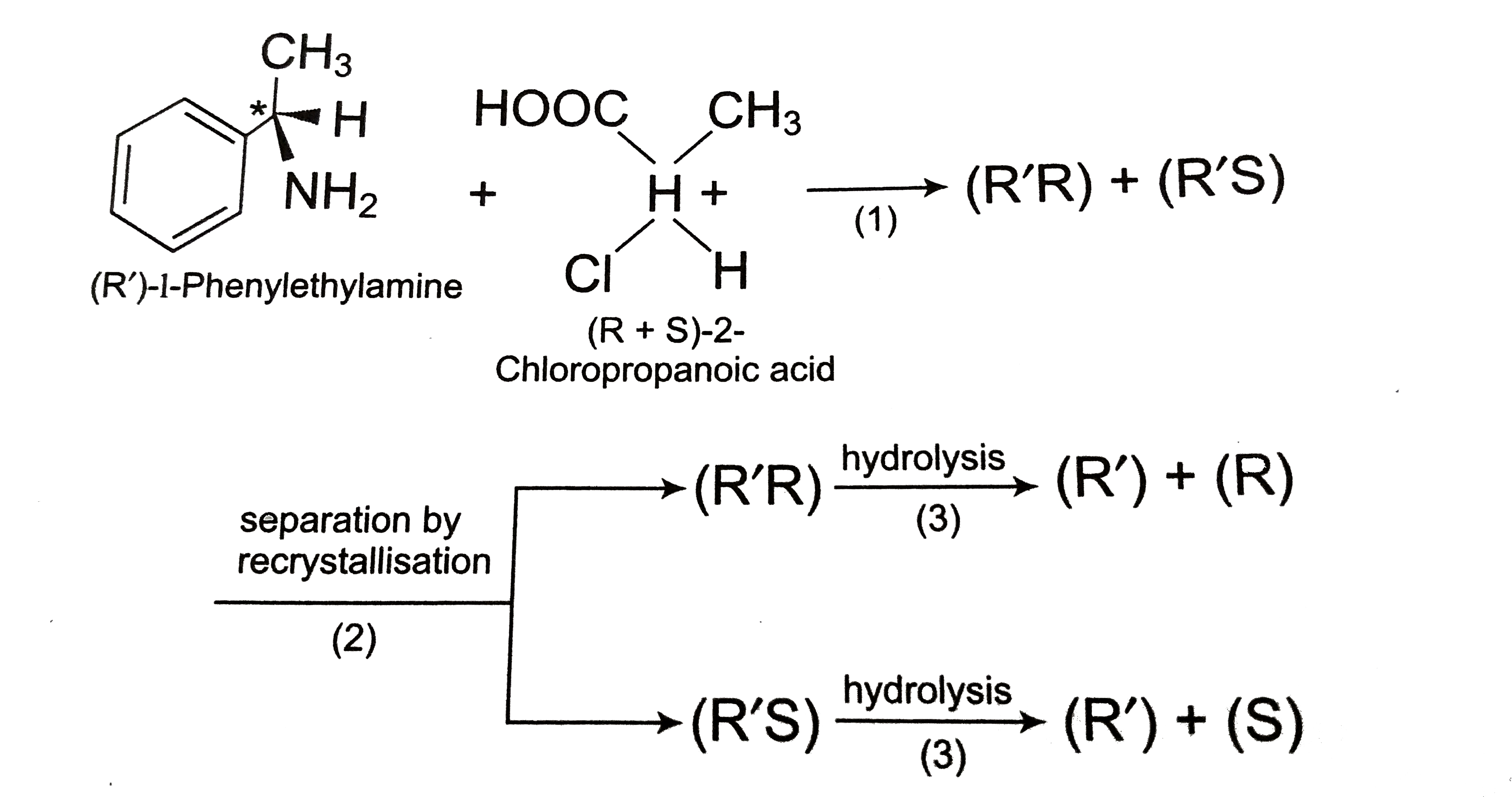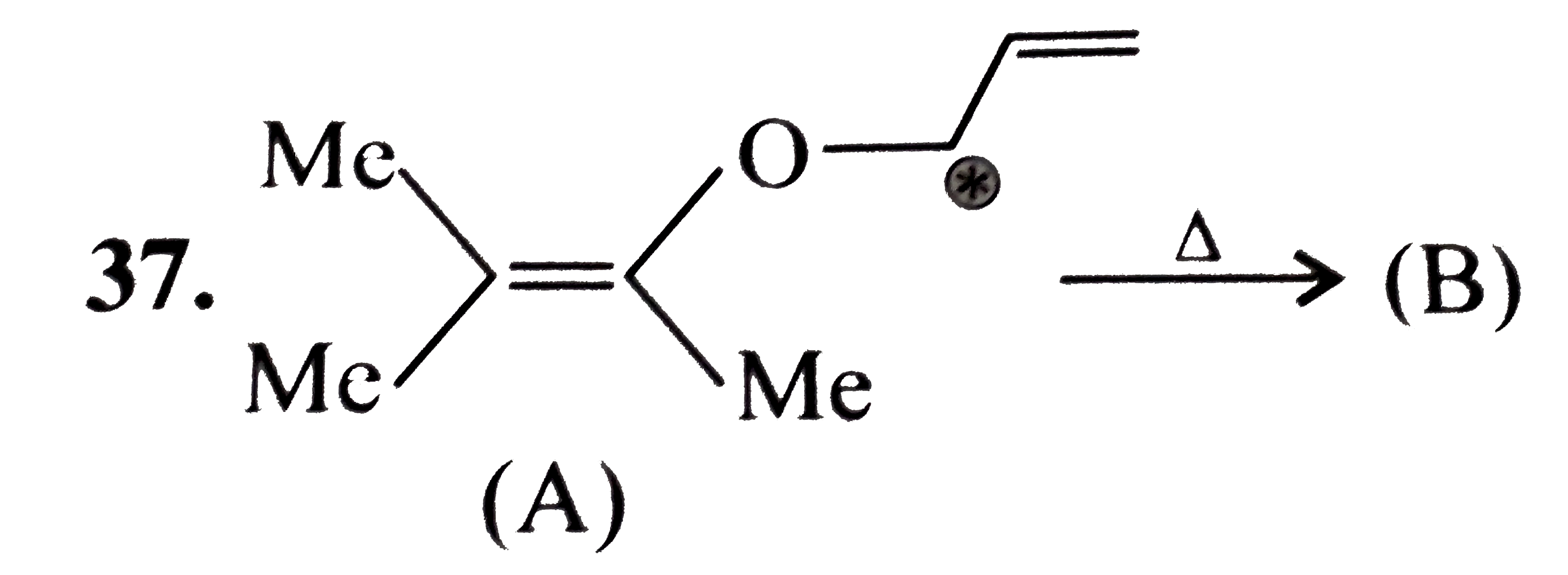
Which statement is correct about the above reaction ?
A
Both products (B) and (C) are optically active.
B
Both products (B) and (c) are optically inactive.
C
Product (B) is optically inactive but product (c) is optically active.
D
Product (B) is formed by anti-addition but product (c) is formed by syn-addition of H2.
Video Solution
Text Solution
The correct Answer is:C
Both reagents convert C≡C to (C=C), P - 2-catalyst adds by syn-addition, while Birch reduction adds by anti-addition.
 .
.
|
Topper's Solved these Questions
- ORGANIC REACTION MECHANISMBOOK - CENGAGE CHEMISTRYCHAPTER - ORGANIC REACTION MECHANISMEXERCISE - Assertion-Reasoning
12 Videos
- ORGANIC REACTION MECHANISMBOOK - CENGAGE CHEMISTRYCHAPTER - ORGANIC REACTION MECHANISMEXERCISE - Archives
8 Videos
- ORGANIC REACTION MECHANISMBOOK - CENGAGE CHEMISTRYCHAPTER - ORGANIC REACTION MECHANISMEXERCISE - Multiple Correct
30 Videos
- NCERT BASED EXERCISEBOOK - CENGAGE CHEMISTRYCHAPTER - NCERT BASED EXERCISEEXERCISE - Chemical Equilibrium
72 Videos
- P-BLOCK GROUP 13 - BORON FAMILYBOOK - CENGAGE CHEMISTRYCHAPTER - P-BLOCK GROUP 13 - BORON FAMILYEXERCISE - Exercise Archives (Subjecive)
9 Videos
Similar Questions
Knowledge Check
D-Glucose and D-fructose both form the same osazone, Which statements are correct about the above reaciton?
AGlucose and fructose are epimers.BGlucose and fruc tose are anomers.CThe c onfigurations of the OH group at C-3 and c-4 in glucose and fruc tose are same.DThe configurations of the OH group at C -4 and C-5 in glucose and fructose are same.Which statement is correct about halogens ?
AThey are all diatomic and form univalent ionsBThey are all capable of exhibiting several oxidation statesCThey are all diatomic and form divalent ionsDThey can mutually displace each other from the solution of their compounds with metals.
Which of the following statements is/are correct about the above reaction ?
 AThe compounds (B) and (C ), respectively, are:
AThe compounds (B) and (C ), respectively, are:
 BThe compounds (E ) and (F), respectively, are:
BThe compounds (E ) and (F), respectively, are:
 CThe compounds (B) and (C ), respectively, are:
CThe compounds (B) and (C ), respectively, are:
 DThe compounds (E ) and (F), respectively, are:
DThe compounds (E ) and (F), respectively, are:

Which statement is correct about the following reactions ?
 .
.
View SolutionWhich statement is correct about the following reactions ?
 .
.
View SolutionWhich statement is correct about the following reactions ?
 .
.
View SolutionWhich statement(s) is/are correct about the reaction:

View Solution
Observe the following reaction:
Which statement is not correct about the above observation?
View Solution


